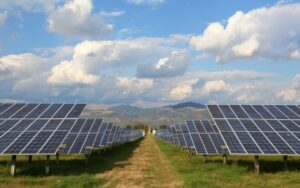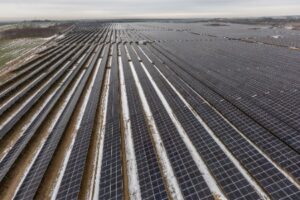The Role of PPAs in Driving the Transition to Renewable Energy

The move to renewable energy is no longer a distant objective, instead it is an urgent one. The Power Purchase Agreement (PPA) is a key instrument in this effort. PPAs are unique arrangements that provide companies and organizations access to renewable energy at predictable prices. Here’s how PPAs with Constant Energy are influencing the future of energy.
What is a PPA?
A PPA is an agreement between an energy buyer (a company or organization) and a renewable energy supplier. These agreements specify the conditions for acquiring power from solar or wind projects, which are typically at a fixed rate for a certain length of time. PPAs provide a cost-effective alternative for organizations to achieve sustainability objectives without owning energy infrastructure.
PPAs are often long-term agreements lasting 10 to 25 years that give companies with a predictable energy cost structure. The price per kilowatt-hour (kWh) is often set or subject to restricted changes, providing security against growing energy costs in conventional markets.
In certain circumstances, PPAs provide the opportunity for companies to acquire renewable energy certificates (RECs) or credits to further their sustainability efforts. These agreements are sometimes structured as “sleeved PPAs,” in which an intermediary, such as a utility or energy service provider, assists in delivering energy produced from remote sources to the buyer’s premises. This allows businesses to get renewable energy even when direct connection to on-site generation is not possible.
Why are PPAs Important for Renewable Energy Adoption?
Providing Financial Certainty
PPAs enable businesses to lock in energy rates, insulating them from market volatility. This financial stability is especially desirable to enterprises that need long-term energy supplies. Locking up energy rates via PPAs gives companies exceptional financial stability. This is especially important for businesses that operate in sectors with low profit margins, where energy expenditures may account for a significant share of operating expenses.
Furthermore, PPAs may serve as a hedge against price volatility in the energy market, where prices may vary owing to geopolitical tensions, supply chain concerns, or changes in demand. Knowing that energy costs will stay consistent for decades gives companies more confidence in their financial planning and investment choices as they grow or enter new markets.
Encouraging Renewable Energy Development
PPAs encourage the development of new wind and solar projects by securing a consumer for renewable energy. These agreements lower developers’ financial risk, boosting the uptake of sustainable energy. PPAs provide a guaranteed income stream, which is an important aspect in funding large-scale renewable energy projects. Developers are generally unwilling to invest in wind or solar farms unless they know there will be a market for the power they produce.
Businesses that opt into long-term PPAs provide developers with a steady cash stream, allowing them to get finance and begin development. This encourages the fast development of renewable infrastructure, which is critical for fulfilling global carbon reduction objectives while also satisfying the rising demand for clean energy.
Assisting Businesses in Achieving Sustainable Goals
For organizations looking to minimize their carbon footprint, PPAs provide a clear road to renewable energy utilization. Companies such as Google and Amazon have used PPAs to achieve lofty environmental goals. PPAs provide firms with a simple way to satisfy their sustainability goals by ensuring that a part of their energy usage originates from renewable sources.
PPAs provide a clear and verifiable method for companies to achieve their renewable energy goals. Further examples are companies like IKEA, Microsoft, and Facebook who have achieved substantial progress in their sustainability efforts by entering into PPAs, illustrating how enterprises of all sizes may use these agreements to contribute meaningfully to global sustainability objectives.
Addressing the Barriers to PPA Adoption
Despite their advantages, Power Purchase Agreements (PPAs) have several challenges that may discourage implementation. For smaller firms, negotiating and comprehending the conditions of a PPA may be daunting. Furthermore, extended contract lengths may conflict with a company’s strategic intentions, particularly for those in risky sectors.
To address these problems, renewable energy producers are proposing more flexible PPA alternatives, such as shorter durations and streamlined agreements. Governments may also help by providing incentives for firms to consider PPAs or instructional tools to help them understand the process.
Example of PPA Success Stories
Corporate Leaders: Major firms, such as Amazon and Google, have embraced PPAs to power their operations with renewable energy.
Public Sector: Universities and municipalities are also using PPAs to save energy costs and promote sustainability.
PPAs may make a significant impact in the renewable energy market. They accelerate the transition to a sustainable future by making renewable energy more affordable and predictable for companies.





